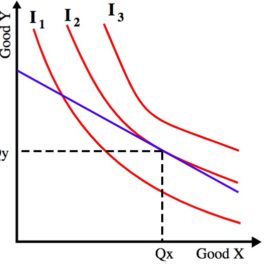

This article is an excerpt from the Shortform book guide to "Waking Up" by Sam Harris. Shortform has the world's best summaries and analyses of books you should be reading.
Like this article? Sign up for a free trial here.
Are you an illusion? In what way does Sam Harris believe you are?
According to Sam Harris, the self isn’t real. In his book Waking Up, Harris argues that consciousness and feelings of individual selfhood are two separate aspects of experience. While consciousness is real, your sense of self is an illusion.
Read more to understand Harris’s argument and how he arrives at this belief.
Sam Harris on the Self
According to Sam Harris, the self is an illusion. It’s this tenet, he contends, that lies at the heart of spirituality. A spiritual experience is the feeling of transcending your limited existence, freeing your awareness from the constant grind of anxiety, longing, sadness, and pain. Throughout history, many people have felt such transcendence, usually in the context of a religion that attributes moments of rapture to divine origin. However, since people of all faiths have had similar transcendent experiences, even between religions that directly contradict each other, then, logically, some factor outside of religion must be the source of the spiritual experience.
Harris argues that your feelings of identity and selfhood are an illusion created by a multitude of interlinked mental processes and that transcending the illusion of the self through deep contemplation is the core of spirituality as he defines it.
Separating Selfhood From Consciousness
Since current scientific methodology is insufficient to fully explore the nature of the mind, Harris turns to meditative introspection to investigate the properties of consciousness, identity, and selfhood, as well as what it means to transcend them. Harris describes the fundamentally subjective nature of consciousness, how it can be explored on a personal level, and why consciousness and individual selfhood are two separate aspects of the mind, with the latter being more illusory than you think.
The crux of Harris’s argument in favor of a “secular spirituality” is that a meditative practice can help you find tranquility by experiencing moments of pure, unfiltered consciousness. This happens when you experience consciousness without thought, when you let your inner voice—as well as the constant churn of emotions that your thoughts inevitably trigger—slide away. Harris says that if you can experience awareness unburdened by your constant internal chatter, you’ll realize that your consciousness is independent of any feelings of personal identity and selfhood, and that your sense of identity is merely an illusion. This is a counterintuitive concept, so some definitions are in order.
When Harris says the “self” is an illusion, what exactly does he mean? The selfhood he’s referring to is the feeling that you’re an incorporeal being sitting inside your head, looking out through your eyes, and steering your body like a vehicle. Harris asserts that this particular feeling is a product of what he calls “psychological continuity,” the constant creation and narration of memories about your physical and cognitive experiences from one moment to the next. This moment-to-moment continuity creates the illusion that the “you” inside your head is the same “you” you were yesterday or will be tomorrow. But is that really the case? Are “you” the same person “you” were five years ago, or when “you” were a child?
| The Continuity of Self A possible answer to Harris’s question was the subject of a 2012 psychological study that evaluated personality shifts in more than 170 people over a 65-year period. The study found that a person’s ability to regulate their moods remains consistent throughout life, but other personality traits do not, though the changes are gradual. A different study suggests that out of all of a person’s characteristics, your moral beliefs and attitudes are most closely related to your sense of identity, with memory coming in second place. A counter-argument to Harris’s statement that psychological continuity is the root of feelings of selfhood is the experiences of people with Dissociative Identity Disorder (DID, formerly known as Multiple Personality Disorder). People with DID exhibit several distinct identities, each with its own separate sense of self, but without continuity over time—memories available to one identity may not be accessible to others, and vice versa. In practice, this manifests as each identity having partial amnesia, missing chunks of their past. |
However, when meditation interrupts your mental chatter, you experience awareness unclouded by the internal narrative that normally defines your sense of identity. You realize that from a subjective point of view, all that can really be said to exist is your present awareness and the thoughts it contains. Harris isn’t arguing that you don’t exist or that you haven’t experienced the things you remember. What he’s saying is that your sense of selfhood is a construct of your memories and thoughts, and that it covers up a deeper reality—that all you really have is your conscious awareness, which isn’t defined by the thoughts, feelings, and memories that routinely impinge upon it.
(Shortform note: If feelings of selfhood are based on memories, as Harris suggests, then that opens up another argument that selfhood is an illusion—because memories are unreliable. In The Art of Thinking Clearly, Rolf Dobelli writes that your brain constantly rewrites your memories, altering details as your beliefs change over time. In this sense, your memories and your sense of identity are in part a fabrication of your brain. Like Harris, Dobelli isn’t saying that everything you remember is wrong, but that your memory is subject to cognitive biases such as fixating on recent events and forgetting information as soon as you don’t need it.)
Enlightenment Is Losing Your Sense of Selfhood
If you’re unclear about the end goal of meditation beyond learning to be more present in the moment, you’re not alone. The “enlightenment” that meditative masters speak of is notoriously tricky to define. Harris describes enlightenment as losing your sense of individual selfhood and becoming aware of the world around you without the barrier created by your thoughts. He discusses what a state of enlightenment might feel like, the steps you go through on the way to achieving it, and what enlightenment teaches about the workings of the mind.
The goal of enlightenment isn’t to stop thinking and feeling. The goal is to stop identifying with your thoughts and emotions because that self-identification lies at the root of all your suffering. Harris says that meditation can break you from the cycle of pain by training you to recognize your thoughts and feelings as objects that exist apart from your consciousness.
This is spiritual enlightenment at its core—that consciousness without thought is your true, underlying experience. Harris doubts that anyone can live in this state of awareness all the time, but he does believe that through practice you can glimpse it. Doing so can free you from the suffering triggered by the thoughts projected on the blank screen of your mind. How can you suffer when the “self” that is suffering is just an illusion, a “movie special effect” of the brain?
(Shortform note: In The Happiness Trap, Russ Harris presents another way of looking at the same idea that Harris is trying to convey. Instead of declaring that the self is an illusion created by a stream of passing thoughts, he says that you have a “thinking self” and an “observing self,” each of which serves a different function in your mind. In this view, the purpose of mindfulness is to disentangle these two parts of your awareness so that you can observe and recognize which thoughts are helpful and which thoughts aren’t. Rather than seeing your “thinking self” as an illusion, you can simply learn to distance yourself from its more destructive tendencies.)
The Paradox of Enlightenment
Realizing that your sense of selfhood is just a figment of your imagination brings up the following conundrum: Why should you work to improve yourself if your “self” doesn’t really exist? Harris explains how different schools of thought address this riddle, then explores the teachings of Dzogchen Buddhism and how it points toward a healthy approach to accepting life’s pitfalls while striving to be better. Harris says that meditation doesn’t “make your mind better”—it reveals a state of tranquility that was there for you to access all along.
Harris adopts a personal approach adhering to the teachings of Dzogchen Buddhism. The point of Dzogchen is to break through the illusion of selfhood and experience pure consciousness at any given moment. This breakthrough isn’t a product of drawn-out meditation, but rather takes the form of an instant awareness of the illusion. However, Dzogchen teachers acknowledge that you’re unlikely to have the “flash of insight” you’re trying to achieve without the observational skills developed by practicing meditation. Therefore, in Dzogchen, you meditate to strengthen your awareness so that when your moment of insight comes, you’ll be able to recognize it for what it is.
Harris says that, by following the teachings of Dzogchen Buddhism, he’s able to see through his own illusion of selfhood. He can’t do it all the time, but with practice, he can access an unclouded awareness of the present moment on a regular basis. He finds that this kind of spiritual awareness doesn’t lead to detachment or a lack of motivation to improve himself. Rather, he argues that such an awareness can help you find a place of calm and clarity from which you can accept your life and the world while striving to make things better.
Exercise: Are You an Illusion?
While Harris’s other writings question the validity of religion and the existence of God, in Waking Up he asks you to question whether your individual sense of selfhood is real or illusory. Whether or not you agree with his argument, take a moment to contemplate the basis of your feelings of identity.
- Assuming that the conscious workings of your brain are the product of unconscious neurological processes, how much do you feel that you’re actually in control of your thoughts, feelings, and inner motivations? Have you ever had a thought or feeling that took you by surprise and that you couldn’t explain? In retrospect, what might have triggered it?
- Given that your experience of the world is subjective, what mental biases and distortions may affect your perception of the world? Have you ever had an experience where you found out later that your perception or memory of the event was wrong? If so, what was it?
- If you accept that your thoughts and feelings are even slightly rooted in your unconscious, and if you accept that your perceptions and memories are subject to error and distortion over time, then what do you feel is the strongest basis for the “self” that sits at the core of your personal identity? If you were to meet a younger version of yourself, one without the same memories and perceptions you now have, in what way would they be the same person you are now?

———End of Preview———
Like what you just read? Read the rest of the world's best book summary and analysis of Sam Harris's "Waking Up" at Shortform.
Here's what you'll find in our full Waking Up summary:
- Why those who reject religion are missing out on something crucial
- A reason-based approach to spirituality that’s rooted in science and meditation
- What science and theology have to say about the soul and the mind






